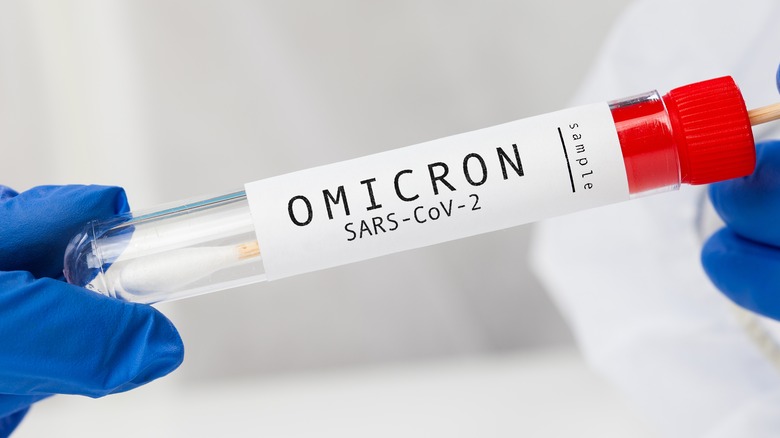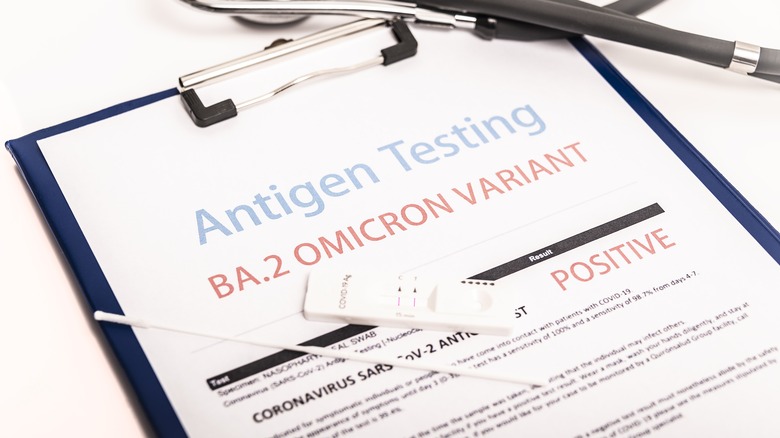Is It Possible To Get Omicron More Than Once?
Due to the high transmissibility of the Omicron COVID-19 variant, the public and the scientific community alike have been left asking, what is the likelihood of being reinfected with Omicron? Having been detected in all 50 states across the country (via Newsweek), the BA.2 variant — or "stealth Omicron" — has been deemed a variant of concern by the World Health Organization (WHO).
Studies have revealed the BA.2 variant to be 30% more contagious than the initial BA.1 Omicron strain (via CNN). Knowing this, are we more at risk for reinfection by the BA.2 variant than we are for the BA.1 variant?
Dr. Suneet Singh, emergency medicine physician and medical director at CareHive Health, recently spoke to Men's Health about the low possibility of Omicron reinfection occurring within the same month as initial infection. "The immune response during recovery is very robust and offers protection that is extremely strong in the days immediately following the infection," Dr. Singh told the publication. "But, for a very small fraction of patients, Covid re-infections occur soon thereafter similarly to other respiratory illnesses."
But what about the reinfection rate of the BA.2 variant, specifically?
The chances of reinfection with the BA.2 variant
In a recent preprint study, researchers examined over 1.8 million COVID-19 positive cases of infection. Between November 2021 and February 2022, 187 reinfection cases were detected within 20-60 days following initial infection. Of these 187 cases, the BA.2 variant was responsible for 47 of them after the initial infection of the BA.1 variant. These findings indicate that the chances of reinfection with the BA.2 variant following an initial Omicron infection are slim (via Healthline).
Researchers also point out that the majority of reinfection cases involved mild symptoms in those who were young and unvaccinated (via MedRxiv). Dr. Daniel Gluckstein, who is board-certified in infectious disease, explained to Healthline how these outcomes were similar, regardless of the variant of reinfection. "Reinfections with Omicron BA.2 or BA.1 were much more likely in younger unvaccinated persons, so vaccines were very effective in preventing the reinfections compared to prior infection alone," Dr. Gluckstein told the source.
While it is possible to get Omicron more than once, researchers point out that reinfection cases are more likely to be that of the BA.2 variant rather than BA.1 (via Healthline). In addition, the viral loads in BA.2 variant reinfections have shown to be less than those in initial BA.1 infections.


